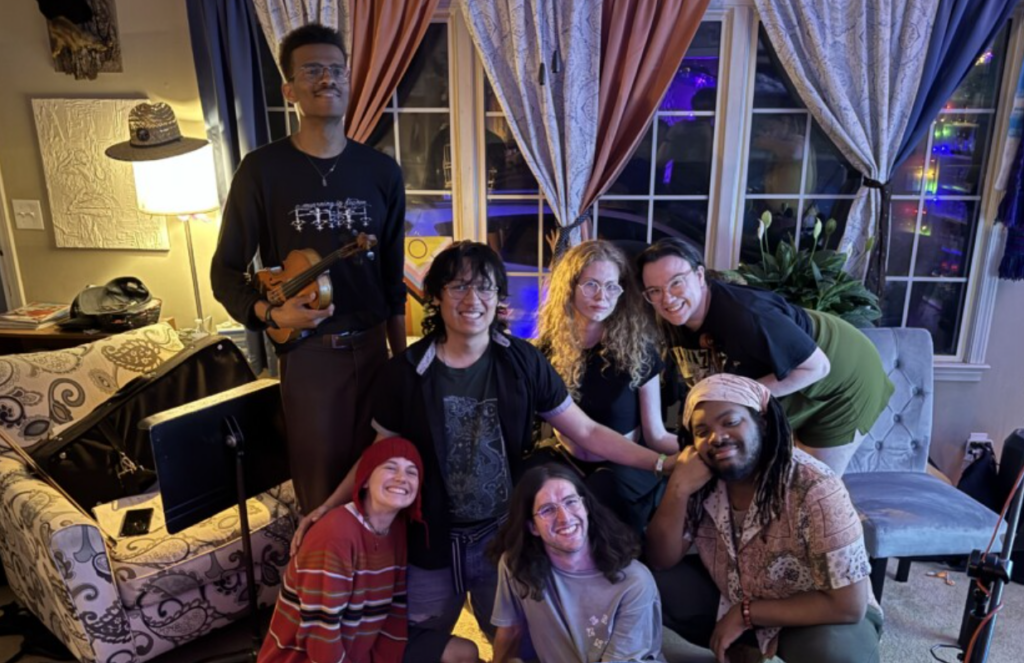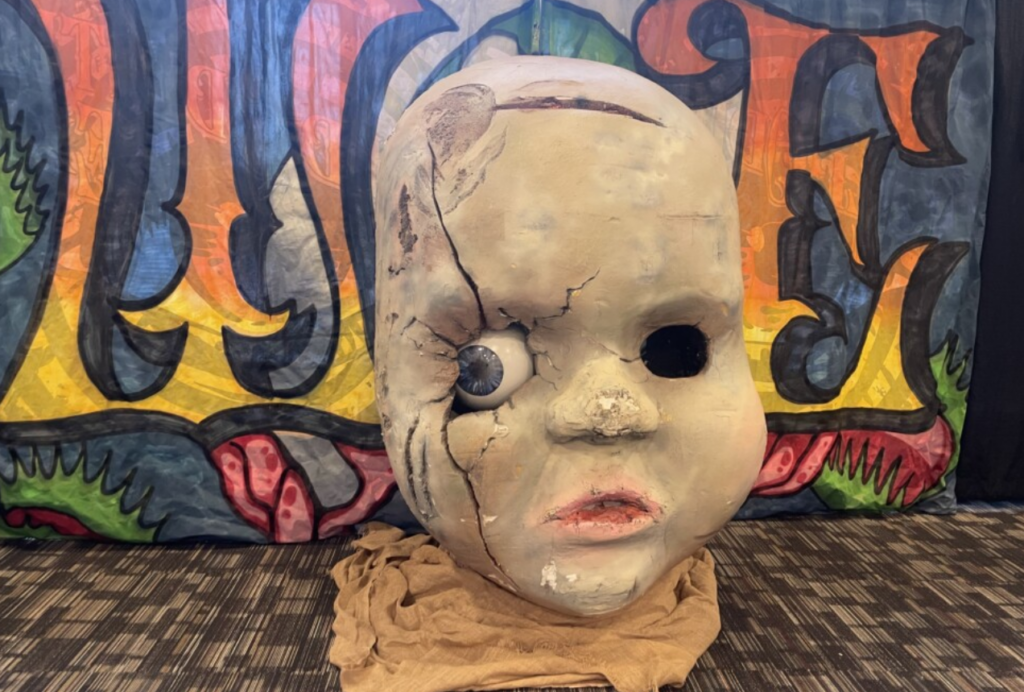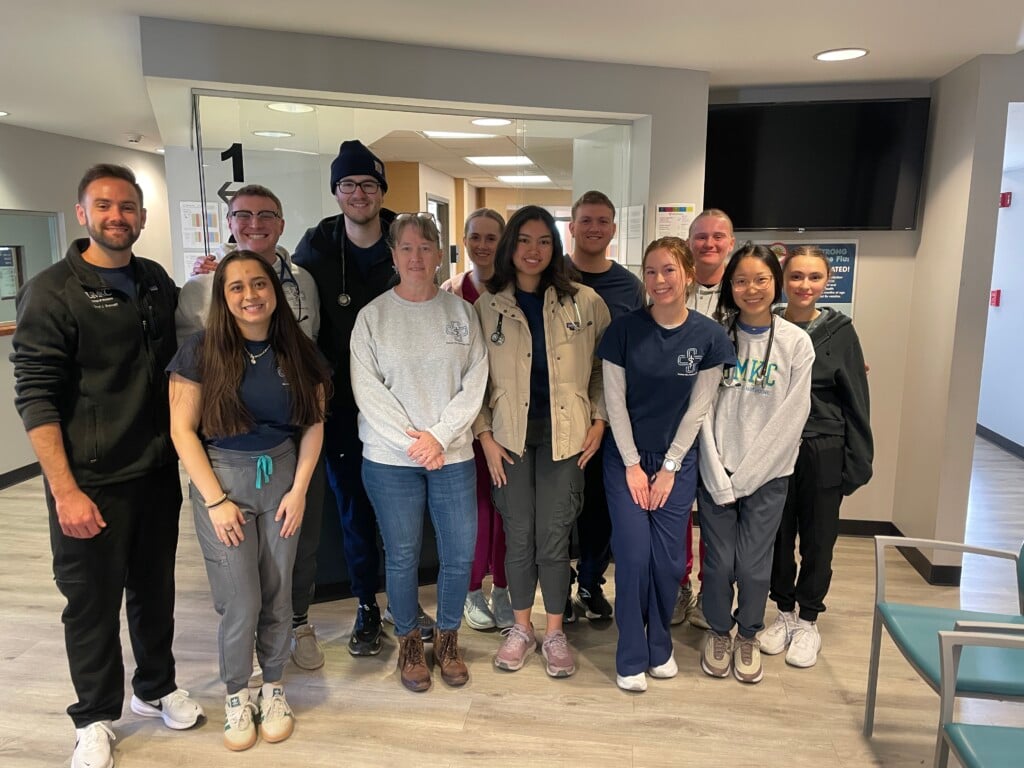Smoke Show: Missouri microbusiness licenses leave applicants in the dark
As the state and the Department of Health and Senior Services (DHSS) Division of Cannabis Regulation (DCR) continue to try to sort out the mess that is the microbusiness license program in Missouri, license holders have remained in the dark.
Business partners and lifelong friends Kelyn Conner and Dillon Mapes won in the second lottery of the microbusiness program back in June 2024. The two qualify for the license based on nonviolent marijuana felony charges that they received together. After the license was issued in July, they had to undergo the minimum standards review to make sure that everything was up to compliance with the state.
They say that they passed the minimum standards review in October, but shortly after, the DCR gave them notice that they were in violation of compliance due to a convertible note, which would transfer partial equity of the business to Conner, since Mapes is the designated contact and license holder. Their reason for having this convertible note in their license agreement was to ensure that both parties received their deserved stake in the business.
“Their big hang-up is, if you did transfer equity, it would need to be someone that is eligible,” Mapes says.
“Which I qualify as well,” Conner mentions.
“So I don’t know really what the big stink is about,” Mapes says.
DCR Executive Director Amy Moore could not speak to their specific license, but mentioned what the department looks for when reviewing and approving the certification.
“We have always explained to licensees, if you enter into these agreements for potential future financial transactions that would change ownership, they need to be constructed in a way that doesn’t make them effectively, automatically already in place, that ownership change, and it can’t be that you put something together where really it’s a done deal. There’s no way the current owner could get out of it without torpedoing their license,” she says.
Because of the violation, they say they rescinded the convertible note altogether in hopes that it would allow them to get operations underway. They claim that they have been in conversations with the state and department throughout this process, as they continue to give the partners “seven-day deadlines” to submit paperwork showing compliance.
“Then we don’t hear from these people,” Mapes says. “If we even hear from them, [it takes] weeks at a time, a month.”
Moore says that because of the amount of possible revocations in the recent lottery, the department’s communication efforts with licensees has lagged. She mentions that DCR Chief Equity Officer has seen an uptick in individuals reaching out for guidance on reaching compliance since the town hall meeting for licenseholders was held on Feb. 19.
“It’s all about the number of notices of pending revocation that we had this time,” she says. It was more than we’ve been in the first round, and we really want to be sure that we’re applying the same analysis consistently to anyone who has the same or similar issues.”
Their violation comes at a time when nearly half of the 96 issued licenses from the first two rounds of the microbusiness program have received a notice of pending revocation (NOPR) or have been revoked. What makes the two’s situation much more unique is the fact that they never received a notice of pending revocation.
“We didn’t even get a NOPR, and all we’re asking for is simple guidance on how we can make this thing legit and happy in their eyes, and we can proceed,” Mapes says.
State regulations require microbusiness licensees to have operations underway within two years of receiving the license. Mapes and Conner have been at a standstill since receiving their violation notice in October, now over half a year since becoming license holders.
Mapes says that the wait has impacted the business’s future, as he has to put construction and other groundbreaking projects on hold until they are deemed compliant.
“I got in touch with a builder to get the build-out going,” Mapes says. “I was just essentially getting the ball rolling for springtime (2025). And we’re in the same situation we were in back in October. My builder reached out to me at the end of January, kind of like, ‘What’s the game plan?’ And I can’t give him an answer. His business has gotta keep rolling.”
Mapes mentions that many of the individuals who are now searching to prosper off of legal cannabis in the state have waited years for the opportunity. It took years for recreational cannabis to pass in the state, and now time continues to tick for those trying to get their foot in the door of the business.
“At the end of the day, we don’t have a long time on this earth,” Mapes says. “It took this long for weed to be legalized. There are many entrepreneurs out here that are kind of older—late 30s, 40s, that are just now getting their opportunity. We’ve been waiting 10 years for it, so time is ticking.”
When they received the certification in July, Mapes says he quit his job in marketing. He figured that he would be ready to go all in on his new endeavor, but waiting for the state and department to deem the license compliant has led to a loss of income over multiple months.
On top of the loss of income from quitting his day job, the partners have also had to use funds that were originally intended for operating the business to hire legal counsel to help them sort through paperwork and get up to compliance.
“Bank account is running dry here soon,” Mapes says. “Another thing is hiring the lawyer to set up the business after we pass minimum standards. We never even got that far. The money that I used for the retainer went to other documents to satisfy the DCR. So now that money is gone.”
Because of the ongoing situation, the two say that they are no longer concerned about where the equity lies within the business, but simply just want to get up and running.
“At this point, it doesn’t matter,” Mapes says. “The equity doesn’t matter. We want to get the ball rolling. Kelyn and I can figure out numbers at the end of the day.”
The meeting that the DCR hosted at the end of last month was to address concerns and discuss the program’s future plans. Moore says the meeting was held to try to make the department more hands-on for those looking for answers.
“We have tried, over time, to really increase and improve our communication outreach to all licensees, but we do notice and pay attention to that difference for these licensees, so we put the town hall together,” she says.
Moore says that one of the major topics at the meeting that she claims has given some licensees relief was the opportunity to submit a variance, which would allow deadline exceptions for certain license-holders to get operations underway.
“We talked about how to submit a variance, what we would expect to see—your personal circumstances, not just like a one liner, ‘I need more time.’ So there was a lot of interest in that, and I think, generally, seemed to be some relief that that was an option to file that request,” she says.
She also says that some individuals are growing closer to getting their businesses up and running.
“One interesting thing that came up in the town hall is we heard from licensees that there are quite a few that are very close to asking for commencement inspections,” Moore says. “So that was really exciting to hear.”
Conner and Mapes say that they attended the meeting and made their voices heard when they could.
Moore says that she is not sure when the department will land on a final draft for the rule revisions.
“There’s no real set time frame internally for getting that done,” Moore says. “I think we’re all aware that we need to decide if we’re going to move forward, and, if so, how, because that third round of licensing needs to happen, and whether we’re going to file rules will determine the timing of that.”
After speaking with DCR Director Amy Moore, she mentioned that the rule revision process could ultimately take six to eight months to finalize and put the program back into motion.
Eight months from the date of the first rule revisions draft would mark August of this year—over a year since the second round of licenses was awarded. The two worry that the ongoing halt will be detrimental to getting their business off the ground.
“At that point, I’m definitely going to have to entertain other options, which I’ve already considered,” Mapes says.
They take into consideration that the structure of the microbusiness program was designed to help uplift disadvantaged communities, yet seems to have only caused confusion and frustration among these individuals.
“We’re the sole reason they started this program—to help us, and obviously our families and the people around us, while providing a quality product to the market,” Mapes says.
Moore says that she and the department worry about the program’s current state, which is why they have released the rule revisions with changes that address their concerns, such as crafting a structure that would deny more applications and, in turn, lead to fewer revocations.
“I think, those of us who really studied the structure of this license and how similar licensing efforts have played out in other states were aware that there would be unique challenges here, both to the business itself and then also to ensuring that the licenses stay with those who are meant to benefit from them,” she says. “You can have concern for how it’s going, but also not be entirely surprised.”
Since The Pitch contacted the DCR in early March to discuss this specific license, Mapes says the department notified the two that their violation had been resolved.
The partners also say that, since both The Pitch’s outreach and the town hall meeting, the department’s communication efforts have increased.





